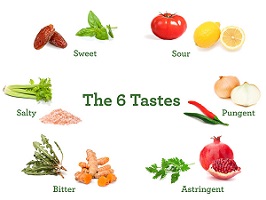Ayurvedic secret for good digestion – Gut health
Majority of people suffer from digestion issues at one point of their life. Ayurveda explains digestion in terms of “Agni”. The concept of Agni, the Sanskrit word for “fire,” is rather essential to the Ayurvedic tradition. Ayurveda teaches us that impaired Agni is at the root of every imbalance and disease. So the importance of Agni in Ayurveda simply cannot be understated. Agni also names the fire element—one of the 5 building blocks from which everything in the universe is composed. Agni equally refers to the digestive fire. As per Ayurveda Agni is divided into “Jadaragni” and “Dhathwagni”. Jadaragni is digestion at gut and Dhathwagni is cell level metabolism. We have to take all the possible steps to maintain Jadaragni, or gut metabolism which in turn helps cell level metabolism and absorption as well. The following steps should be kept in mind to keep Agni at the proper level.

Eat Only When You Are Hungry
Hunger is the sign from the body that the food previously taken has been digested completely. So more than having food as per time, food should be taken when you are hungry. As per olden day Ayurveda system the frequency of meals should be two times a day.
Eat Only Freshly Cooked Food
Freshly cooked food will be warm and easy to digest. Fresh cooked food will give a positive energy to the mind as well which helps in digestive power. Cooked food after refrigeration will reduce the agni.
Drink Warm Water
In olden days we used to boil water with herbs which are good for digestion. Dry ginger, jeera and coriander used to be the favourite choices, nowadays we are having filtered water. Boiled water will support digestion and make absorption easy.
Ayurveda recommends avoiding cold drinks at meals, and ice-cold foods in general. This is because it weakens agni — it’s like putting cold water on burning logs. Iced water, normally served at restaurants, extinguishes the digestive fire. Even juice or milk right out of the refrigerator is too cold for digestion. Juice should be taken at room temperature and water without ice.
Ayurveda recommends that lunch should be the largest meal of the day, since that is the time the digestive agni is at maximum potency. As the sun goes down, so does our agni.
Dinner should be lighter than lunch and should ideally be eaten before 8:00 p.m. Late-night meals interfere with sleep, and after 10:00 p.m. the body is working to burn off toxins and continues to digest food from the day. If you eat after 10:00 p.m., the food may cause toxins to accumulate in the system, and as a result the next day you wake up tired.
How Much to Eat as per Ayurveda
As per Ayurveda we should fill half of the stomach with food, one fourth with water and the rest should be left empty for the free movement of gas and other metabolic products.
Include in Your Diet all Six Tastes

For balanced nutrition, each day your diet you must include all six tastes (sweet, salty, sour, bitter, spicy, tart). All the tastes are required for the proper balance of all the doshas in the body. In all rasas itself sweet items should be taken at the beginning of the meal as it is hard to digest followed by easily digestible food with sour taste. At the end include more spicy food for easy digestion.
Do Not Mix Different Property Food Together- Incompatible Food
Ayurveda clearly defines that certain diets and their combinations, interrupts the metabolism of tissue, and inhibits the process of formation of tissue and has the opposite property to the tissue. These diets are called Viruddha Anna or incompatible diet. The food which is wrong in combination, and has undergone wrong processing, when consumed in incorrect dose and in incorrect time of day and season can lead to Viruddha Ahara. In recent science it is also mentioned that different property proteins should not be mixed together.
Nowadays all are having buffet system of food very frequently. There are a mix of different kinds of food like cooked and uncooked food, different types of meat varieties at the same time like fish, along with mutton or pork etc. These are examples of Virudha Ahara. This will make our Agni low. Avoid different combinations of food and have easily digestible fresh food.
